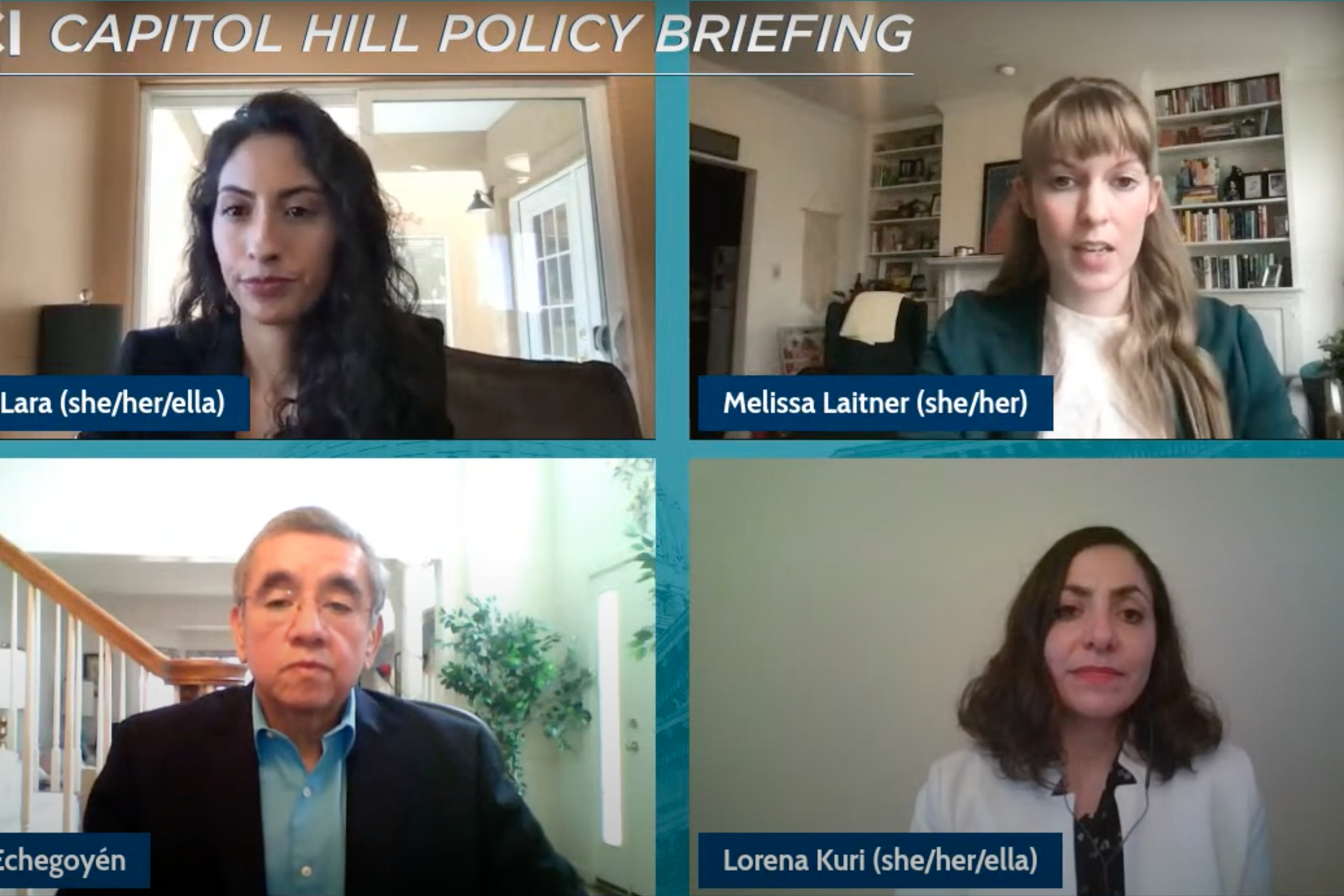By Shivani Chinnappan, SWHR Programs Coordinator
Despite the well-documented, well-known issues around the lack of diverse participants in medical research, the inadequate inclusion of women and certain racial and ethnic groups remains a problem.
As part of the Congressional Hispanic Caucus Institute (CHCI) annual Capitol Hill Policy Briefing Series, SWHR Director of Public Policy and Government Affairs Melissa Laitner, PhD, MPH, spoke on a panel about barriers to the inclusion of historically underrepresented groups in clinical trials. Moderated by CHCI-Bristol Myers Squibb Health Graduate Fellow Devon Lara, the panel also included Omar Echegóyen, a recruiting specialist for the NIH Office of Diversity, Equity, and Inclusion, and Lorena Kuri, director of clinical trial diversity strategy at Bristol Myers Squibb.
Kuri highlighted study design and methodology as a major area in need of improvements. Clinical trial logistics — such as location of the trial site, language(s) spoken during clinic visits, and the consent process — must be designed to make participation easier for underrepresented groups. Panelists suggested some tactics that take participant lifestyle into consideration and reduce obstacles to recruitment and increase patient retention in studies. For example, providing stipends for child care or transportation, ensuring a multilingual approach to recruitment, and offering virtual or telehealth options that allow participants to take part from the comfort of their own homes.
The panelists also identified workforce diversity as an area for improvement, noting that a workforce that better reflects the patient population can help build trust and engagement with participants. “It’s not just a matter of getting individuals with diverse backgrounds into the workforce but also making sure we’re supporting them so they are continuing to persist in the workforce,” Laitner said. “It’s not a simple fix, it’s an ongoing discussion.”
Historical racism in medical research has fostered a sense of mistrust in communities of color, the panelists said, so rebuilding trust with these underrepresented groups should be a priority. Echegóyen explained one way to do this is by ensuring trials are conducted with relationship-building in mind. “When I present myself as a person that is serving them — not more important than them — they trust me as a server of the community,” he said.
Panelists also emphasized the importance of cross-sector collaboration to drive the message of clinical trials inclusion forward. “This is not a competitive space, this is a collaborative space,” Kuri said.
The panel encouraged the audience to engage in conversations about clinical trials research and to lead by example. Laitner suggested science and policy advocates enroll in trials themselves. “We can participate in trials,” she said. “Be a role model if you’re comfortable — especially if you’re in an underrepresented group.”
In their closing remarks, the panelists offered an optimistic outlook. “There has been an unprecedented level of collaboration, data-sharing, and communication,” Kuri said in reference to recent efforts around the COVID-19 pandemic. She added that conversations that started as a result of pandemic present an opportunity to build bridges to improving trials diversity in the long term.
Looking forward, scientific and health care stakeholders must actively pursue more representative clinical trials and work to make changes that encourage the participation of historically marginalized groups within the research community. Improving inclusion within clinical trials represents a scientific responsibility shared across sectors, to better serve the needs of patients.
For more information on the Congressional Hispanic Caucus Institute, please visit chci.org
